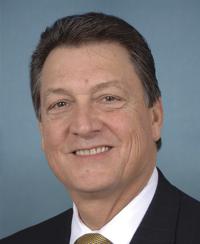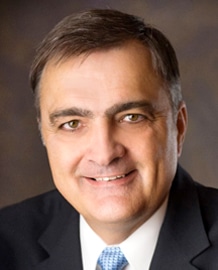
Railroad giant CSX recently laid off half its operating employees at Barr Yard, its primary Chicago switching yard. (AP 2014)
Railroad giant CSX, which is under fire from regulators for operating changes that have disrupted its freight service nationwide, laid off more than 60 employees this week at its primary Chicago switching yard, according to the workers union.
The furloughed engineers, conductors and switchmen represent about half of the operating employees at Barr Yard, a switching facility in south suburban Riverdale that funnels most of CSX freight traffic through Chicago.
In conjunction with the layoffs, CSX reportedly has diverted some freight traffic to other switching yards, fueling rumors that Barr Yard may close entirely.
“When you talk about half of the workforce being laid off, then you start to really worry about the future of the facility itself,” said Bob Guy, Illinois legislative director for the transportation division of the International Association of Sheet Metal, Air, Rail and Transportation Workers union, which represents CSX operations employees.
Rob Doolittle, a spokesman for Jacksonville, Fla.-based CSX, did not confirm the layoffs but said in an email Wednesday that the company is making changes to its operations in Chicago.
“CSX is in the process of reviewing its operations throughout the Chicago region to identify ways to optimize the movement of freight among CSX facilities and with partner organizations,” Doolittle said.
He said no decision has been made to close Barr Yard “at this time” and that CSX is informing employees who may be affected by changes “as they occur.”
Long a key switching yard for the Baltimore & Ohio Chicago Terminal, Barr Yard became part of CSX when it absorbed the defunct B&O line in the 1980s.
The changes at Barr Yard dovetail with a national cost-cutting strategy being implemented by E. Hunter Harrison, a veteran railroad executive who was named CEO of CSX in March. Those efforts have disrupted service, sent frustrated customers to competitors and last month drew a letter of concern from the federal Surface Transportation Board.
The board admonished Harrison for complaints of increased transit times, loaded and empty rail cars sitting “for days” at switching yards, and other delays that have caused customers to curtail production.
“We have acknowledged that some customers are experiencing service issues as transitions are being implemented in various locations around the network, and last week Mr. Harrison sent a letter to customers apologizing for those issues and restating our commitment to working with customers to resolve service issues as quickly as possible,” Doolittle said.
Locally, some CSX freight traffic has been diverted from Barr to the massive Belt Railway Co. switching yard in Bedford Park near Midway Airport. CSX is among several railroads that jointly own the Belt Railway yard.
“If you’re going to close a huge switching facility, then you’re going to put pressure elsewhere on the system,” Guy said. “Those (trains) have to go somewhere.”
Harrison, 72, a lifelong railroad executive, joined CSX from Canadian Pacific Railway, where he was lured out of retirement to take the throttle in 2012. He is credited with increasing profits and cutting costs at Canadian Pacific, a strategy he also employed during previous CEO runs at Canadian National Railway and Illinois Central Railroad.
Dubbed “precision scheduled railroading,” Harrison’s plan is designed to move “more freight faster by optimizing the use of all available assets,” Doolittle said Thursday.
The formula, which includes layoffs, yard closings and longer freight trains, has apparently met with more resistance at CSX. In his July 31 letter to customers, Harrison blamed employee pushback over the cost-cutting measures for the recent service disruptions.
“The pace of change at CSX has been extremely rapid, and while most people at the company have embraced the new plan, unfortunately, a few have pushed back and continue to do so,” Harrison said. “This resistance to change has resulted in some service disruptions.”
John Risch, the national legislative director of the SMART union’s transportation division, said CSX employees are not responsible for the disruptions.
“There’s one person to blame, and it’s E. Hunter Harrison,” Risch said. “He’s the guy that plunged into this thing forcefully and just decided to make major changes, and they’re not very well thought through.”





 With tens of thousands of Texans displaced by Hurricane Harvey, it is important that Americans band together to help our own. Below is a list of charities accepting donations to help with disaster relief efforts.
With tens of thousands of Texans displaced by Hurricane Harvey, it is important that Americans band together to help our own. Below is a list of charities accepting donations to help with disaster relief efforts.



